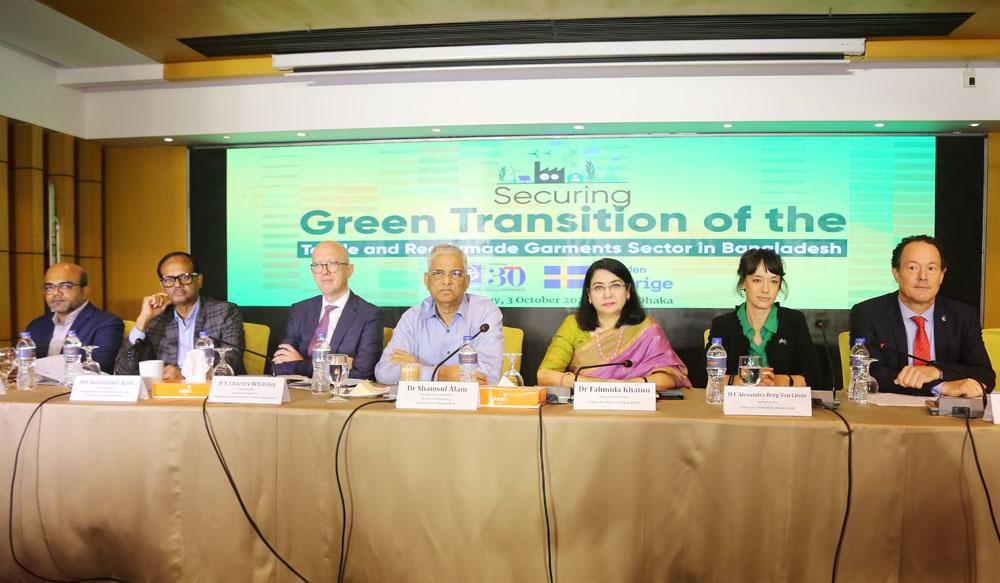
Download Presentation
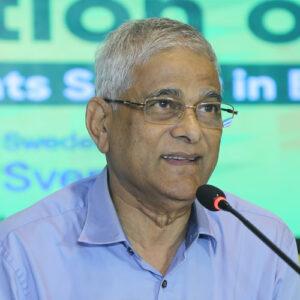
Bangladesh’s export-driven textile and Readymade Garments (RMG) sector is a key economic driver, contributing significantly to employment and foreign exchange. In FY2022–23, the RMG sector alone generated USD 46.99 billion, making up 84.58 per cent of export earnings and 10.35 per cent of Gross Domestic Product (GDP). Major markets include the European Union (EU), accounting for 50.07 per cent and the United States of America (USA), comprising 18.12 per cent of total RMG exports. Bangladesh, as a Least Developed Country (LDC), benefits from duty-free market access under the EU’s Everything but Arms (EBA) initiative. To maintain competitiveness and meet global standards, the textile and RMG sector must adhere to labour laws, safety regulations, and environmental compliance.
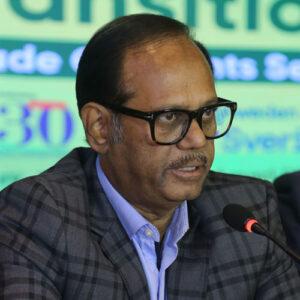
After Bangladesh’s transition from LDC to developing country status in 2026, preferential access to certain markets will be lost. Access can be regained through Generalised Scheme of Preference Plus (GSP+) schemes, requiring compliance with international labor conventions. To succeed, Bangladesh needs a clear strategy for environmental and sustainability goals, aligning with initiatives like the EU Green Deal and COP26 climate commitments. Collaboration among stakeholders, including the government, entrepreneurs, and buyers, is crucial to meet growing demands for eco-friendly production.
These observations emerged at a dialogue titled ‘Securing Green Transition of the Textile and Readymade Garments Sector in Bangladesh’ which was organised by the Centre for Policy Dialogue (CPD) in collaboration with the Embassy of Sweden in Bangladesh. The event was held on Tuesday, 3 October 2023, at Amari Dhaka.
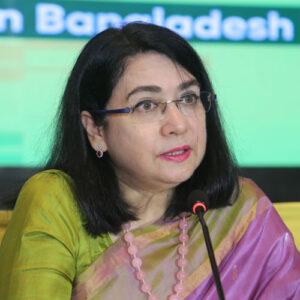
Under this programme, a comprehensive study was carried out, for which a survey of 403 textile and RMG factories was conducted. It also included 130 Key Informant Interviews (KIIs), seven Focus Group Discussions (FGDs) and two Expert Group Meetings (EGMs).
The study found that larger factories have better green practice awareness. It revealed the necessity for a standardised green certification system, rather than relying on multiple certificates. It pinpointed key drivers for green certification — self-motivation, buyers’ requirements, and competitiveness, with government regulations having limited influence.
Dr Fahmida Khatun, Executive Director, CPD, chaired the session and said, ‘The textile and RMG industry holds the potential to significantly reduce greenhouse gas emissions’.
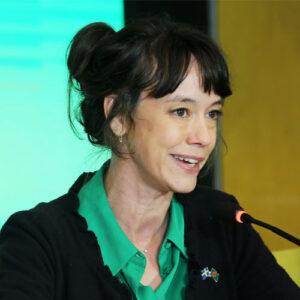
In his keynote presentation, Mr Muntaseer Kamal, Research Fellow, CPD, urged the development of a comprehensive green transition strategy based on stakeholder consultation and evidence-based analysis. He also advocated for the creation of a committee to review green transition policies and regulations, as well as the development of a common framework for green standards and certification procedures, aligning them with international best practices and market requirements.
While recommending economic incentives, he said ‘Fiscal support to polluting industries and fossil fuel-based power generation should be withdrawn and transferred to clean technologies’. Additionally, he proposed offering market-driven incentives like tax breaks and subsidies to encourage factories investing in sustainable production processes with particular emphasis on smaller factories. Furthermore, he also mentioned that premium prices for products from green factories will encourage the various greening initiatives and will be able to compensate for the huge upfront investment required to take up such initiatives.
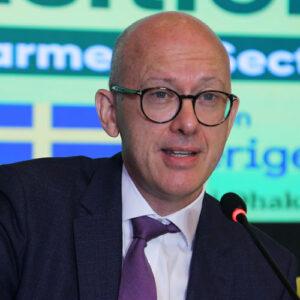
‘Easy access to green finance can be facilitated by creating an online portal for factories willing to invest in sustainable practices’ said the Research Fellow. He added that this portal may include all relevant information pertaining to green finance opportunities and access guidelines.
To enhance awareness and knowledge sharing, he proposed conducting workshops, training sessions, and campaigns to foster changes in values and attitudes towards sustainability. He also recommended the establishment of a green skills development fund to assist companies in providing training to their employees in areas such as energy efficiency, waste management, and the circular economy.
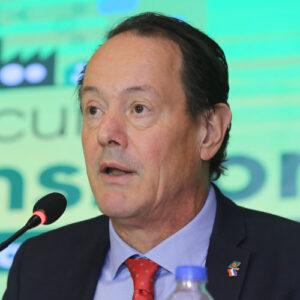
The Chief Guest, Dr Shamsul Alam, Hon’ble State Minister, Ministry of Planning, Government of Bangladesh, mentioned that ‘It is essential to identify the specific fiscal supports that can be provided to the small and medium-sized factories to incentivise the adoption of green practices.’
‘Investments aimed at improving workers’ skills often do not fully meet their actual needs and tend to exclude many workers, especially women,’ said the Ambassador of Sweden to Bangladesh, H E Ms Alexandra Berg Von Linde.
H E Mr Charles Whiteley, Ambassador, Head of Delegation, Delegation of the European Union to Bangladesh, underscored the significance of the GSP+ scheme, recognising that the pursuit of compliance with the 32 international conventions is a continuous endeavor, and while these cannot be achieved immediately, he expressed the EU’s commitment to offering support as an international partner to Bangladesh.
Mr Md Shahidullah Azim, Vice President, Bangladesh Garment Manufacturers and Exporters Association (BGMEA) said ‘Green transition research should focus on suggesting a reasonable pricing structure to facilitate the adoption of green practices by factories.’
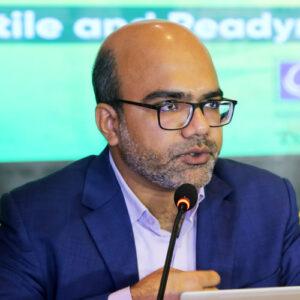
‘Every factory has the potential for sustainable green growth with the right policy framework and a comprehensive plan for its the implementation’ said the Deputy Head of Mission of Embassy of the Kingdom of the Netherlands, Bangladesh, Mr Thijs Woudstra.
The participants in the open floor said that factories also need to make their final products recyclable, especially considering the staggering amount of waste generated each year. Strategies for reducing harmful chemical waste need to be formulated to protect workers from health hazards. The government should also focus on how the activities of the non-green factories are affecting the common people and strategise for effective mitigation.
High-level policymakers, diplomats, foreign delegates, researchers, development practitioners, business leaders and representatives, worker representatives, civil society representatives, international development partners, and journalists participated in the dialogue and shared their valuable insights.


